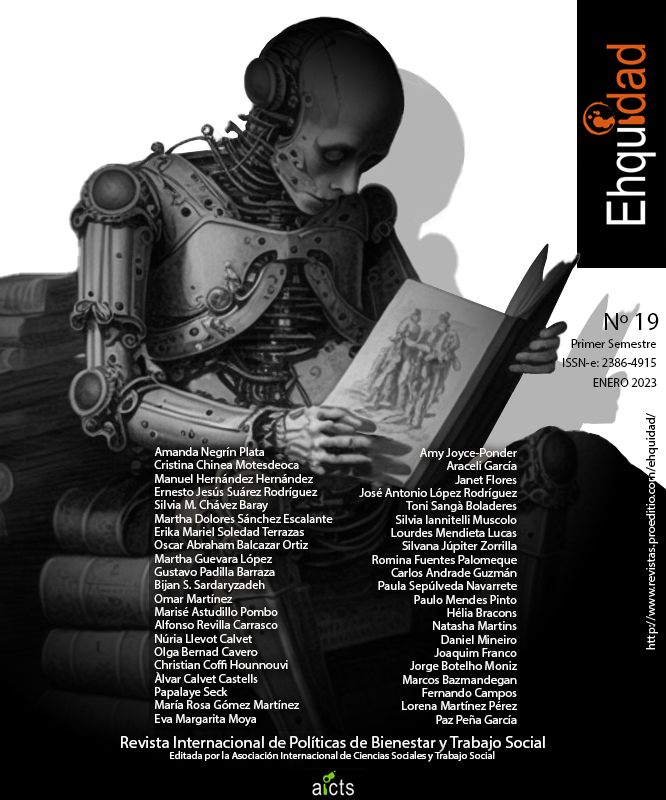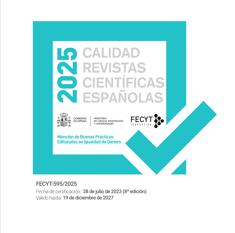Muslims in Odivelas. Dynamics and Community
DOI:
https://doi.org/10.15257/ehquidad.2023.0009Keywords:
Muslims, Mosques, Immigrants, IslamismAbstract
As Abdoolkarim Vakil points out, the growth in the number of Muslims in Portugal was gradually. Second, the data of the communities themselves: in 1974, soon after the democratic transition, there were about 500; in 1978, there were approximately 5,000, the result of the decolonization process, which soon amounted to about 10,000 two years later; in 1982, 15,000; and in the early 2000s, 25,000 and 30,000.
Census data, because the answer about religion is not mandatory, and some fear that immigrants, some illegal, would have to officially present themselves, are significantly lower: in the 2011 Census, only 20,640 individuals identified themselves as Muslims.
Today, all Muslims in Portugal, according to the World Population Review, are expected to amount to about 65,000 (0.4% of the resident population). In the 2018 survey conducted by Teixeira, for the entire metropolitan region of Lisbon, the origin of Muslims was among 66.7% of Africa and 33.3% of Asia. This demonstrates its growth, essentially through an unnatural mechanism, that is, by the coming of individuals from other countries.
This study is part of the Project Charter of Religions of Odivelas, elaborated by the Area of Science of Religions of the Lusophone University and carried out within the framework of the Municipal Plan for the Integration of Migrants (PMIM) and intends in a succinct way to present, the main characteristics of the Muslim community in the Municipality of Odivelas, district of Lisbon.
Downloads
References
Caraciola, C. B. (2019). Fulla: a boneca muçulmana. A formação da personalidade de meninas islâmicas através do ato de brincar. Signos do Consumo, p. 52-65.
Henriques, J. (2021). A comunidade muçulmana em Portugal a caminho de uma reconfiguração: o que está em causa? Acessado em 8 de maio de 2022 em: https://ionline.sapo.pt/artigo/744043/a-comunidade-muculmana-em-portugal-a-caminho-de-uma-reconfiguracao-o-que-esta-em-causa-?seccao=Opini%C3%A3o_i
Hornung, E., Schwedt, G. & Strazzeri, M. (2021). Religious practice and student performance: Evidence from Ramadan fasting. CEPR Discussion Paper, No. DP16620, oct.
Migrant Integration Policy Index. (2020). Acessado em 07 de maio de 2022 em: https://www.mipex.eu/portugal
Mhomed, I. (2006). O Islão político em Portugal [Dissertação de mestrado em Ciências Políticas e Relações Internacionais]. Universidade Nova de Lisboa, p. 17.
Moniz, J. B. (2017). As teorias da secularização e da individualização em análise comparada. Estudos de Religião, 31(2), 3-33.
ONU. (s.d). World Population Review. Acessado em 8 de maio de 2022 em: https://worldpopulationreview.com/country-rankings/muslim-population-by-country
Teixeira, A. (2012). Identidades religiosas na área metropolitana de Lisboa. Ensaio Interdisciplinar, Lisboa, p.287 a 305.
Teixeira, A. (2018). Identidades religiosas na área metropolitana de Lisboa. Fundação Francisco Manuel dos Santos, Lisboa.
Vilaça, H. (2013). Novas paisagens religiosas em Portugal: do centro às margens. Didaskalia, 43(1-2), 81-114.
Vakil, Abdoolkarim. (2003). Mulims in Portugal: History, Historiography, Citizenship. Euroclio Bulletin, 18, p. 9.
Vakil, Abdoolkarim. (2004) Do outro ao diverso - Islão e Muçulmanos em Portugal: história, discursos e identidades. Revista Lusófona de Ciência das Religiões, Ano III, nº 5/6, p. 308.
Vakil, Abdoolkarim. (2005). Comunidade Islâmica em Portugal. Dicionário Temático da Lusofonia, Lisboa, p.5.
Downloads
Published
Versions
- 2023-01-14 (2)
- 2023-01-09 (1)












